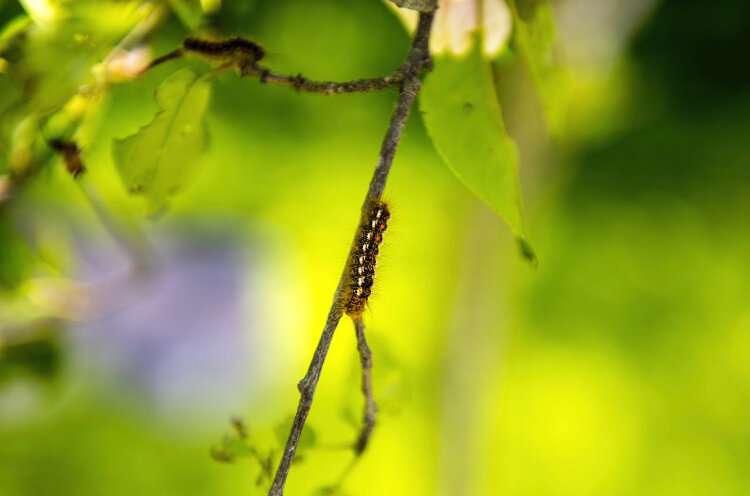
A group of scientists have found that a forest pest that bedevils Maine residents and tourists with hairs that cause an itchy rash appears to be spreading due to warming temperatures.
In America's most forested state, the browntail moth defoliates trees and causes a rash in humans that resembles poison ivy. The hairs of the caterpillar, which have been the subject of an outbreak in the state for about seven years, can cause respiratory trouble.
The scientists wrote in the journal Environmental Entomology that the growth and spread of the moth is tied to warm weather in the fall. Climate trends suggest upcoming years could be worse, they wrote.
The principal investigator on the study, Eleanor Groden, said that warmer fall temperatures allow bugs to get bigger before they hibernate for the winter.
Groden said that if they come out of those webs as mature individuals, they are better able to survive that period and have higher populations.
The browntail moth is native to Europe and other countries. It was accidentally introduced in Massachusetts in the 19th century and is now found in Maine and Massachusetts. The Maine Department of Health and Human Services has identified the caterpillar as an insect of both forest and human health concern.
Since it first arrived in Maine in 1904, the population of the moths has ebbed and flowed. Last year was the worst year for browntail moths in Maine history, as the outbreak has been steadily worsening in recent years. The Maine Forest Service said the bugs have spread into northern and western areas of the state in the last two years.
The study found early fall temperatures are a key determinant of population levels the following year, and that climate trends show continued increases in fall temperatures since the resurgence of the moth.
The professor of ecology and evolutionary biology at the University of Connecticut, who was not involved in the study, said it was another example of how climate change can affect pests and human health. He said that climate change has made problems with disease-causing pests worse.
Climate change appears to be an important driver in this system.
Maine communities have tried a number of strategies to try to slow the spread of the moths. The Maine Legislature is considering creating a grant fund.
They are a difficult species to manage because they are spreading fast and not native to the environment.
She said how can we mitigate the problem in our yards and public spaces is what we are left with.
The Associated Press. All rights belong to the person. The material may not be published, broadcast, rewritten or redistributed.
Citation: Rash-causing moth spreading due to warming, scientists find (2022, February 27) retrieved 27 February 2022 from https://phys.org/news/2022-02-rash-causing-moth-due-scientists.html This document is subject to copyright. Apart from any fair dealing for the purpose of private study or research, no part may be reproduced without the written permission. The content is provided for information purposes only.